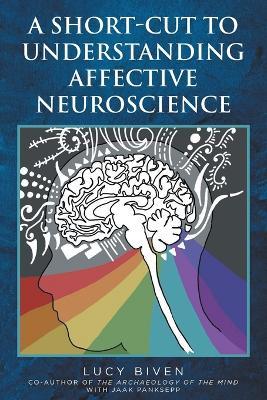A Short-Cut to Understanding Affective Neuroscience

A Short-Cut to Understanding Affective Neuroscience
A Short-Cut to Understanding Affective Neuroscience is a remarkable book that will appeal to academics and laymen, theoreticians and clinicians. Readers will appreciate Lucy Biven's thorough research and her straightforward language. She does not avoid complexity and uncertainty when addressing challenging questions in neuroscience.
-Donald Campbell: Past President and Distinguished Fellow of the British Psychoanalytical Society
This book clarifies and evaluates vast amounts of neuroscientific research, arriving at a clear and concise framework that demonstrates how to ground mental health practice in the results of neuroscience.
With a seamless narrative that weaves and explains complex theories, experimental research, and clinical practice, this book will interest mental health professionals and anyone who wants to learn more about the affective life of people and other mammals.
Beginning with a survey of the theories of affective consciousness, this book first shows that, for all mammals, affects are unique experiences of pleasure and pain, emanating from deep noncognitive brain structures. These subcortical structures in and around the brain stem generate seven basic types of affective consciousness, the existence and breadth of which have important implications for the practice of psychotherapy and psychiatry. For example, the two distinct types of anxiety, each originating in a different system, explain the effectiveness of different medications.
Understanding affects also provides the theoretical basis for conditioning where disparate ideas, as affect-laden memories, can become associated. Thus, by understanding a client's affects, a psychotherapist can make sense of seemingly disconnected ideas that arise in the therapeutic conversation.
PRP: 117.49 Lei
Acesta este Prețul Recomandat de Producător. Prețul de vânzare al produsului este afișat mai jos.
105.74Lei
105.74Lei
117.49 LeiLivrare in 2-4 saptamani
Descrierea produsului
A Short-Cut to Understanding Affective Neuroscience is a remarkable book that will appeal to academics and laymen, theoreticians and clinicians. Readers will appreciate Lucy Biven's thorough research and her straightforward language. She does not avoid complexity and uncertainty when addressing challenging questions in neuroscience.
-Donald Campbell: Past President and Distinguished Fellow of the British Psychoanalytical Society
This book clarifies and evaluates vast amounts of neuroscientific research, arriving at a clear and concise framework that demonstrates how to ground mental health practice in the results of neuroscience.
With a seamless narrative that weaves and explains complex theories, experimental research, and clinical practice, this book will interest mental health professionals and anyone who wants to learn more about the affective life of people and other mammals.
Beginning with a survey of the theories of affective consciousness, this book first shows that, for all mammals, affects are unique experiences of pleasure and pain, emanating from deep noncognitive brain structures. These subcortical structures in and around the brain stem generate seven basic types of affective consciousness, the existence and breadth of which have important implications for the practice of psychotherapy and psychiatry. For example, the two distinct types of anxiety, each originating in a different system, explain the effectiveness of different medications.
Understanding affects also provides the theoretical basis for conditioning where disparate ideas, as affect-laden memories, can become associated. Thus, by understanding a client's affects, a psychotherapist can make sense of seemingly disconnected ideas that arise in the therapeutic conversation.
Detaliile produsului










